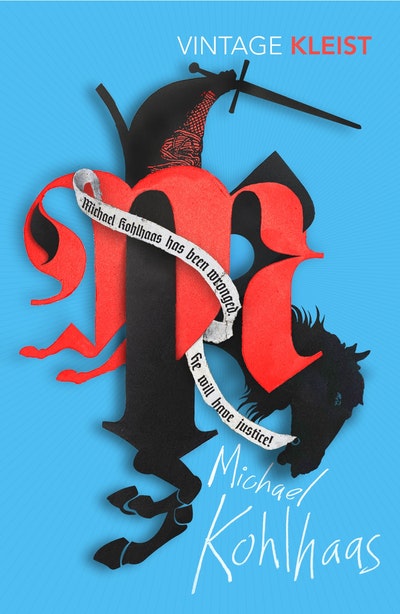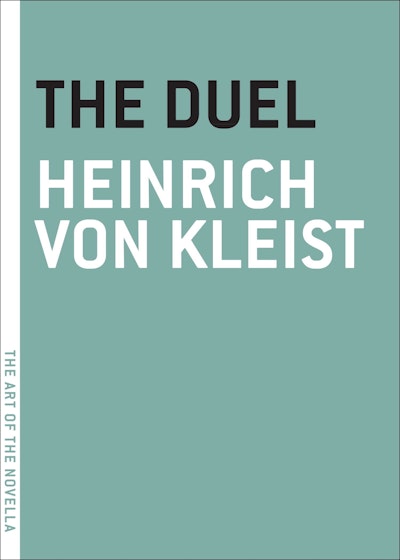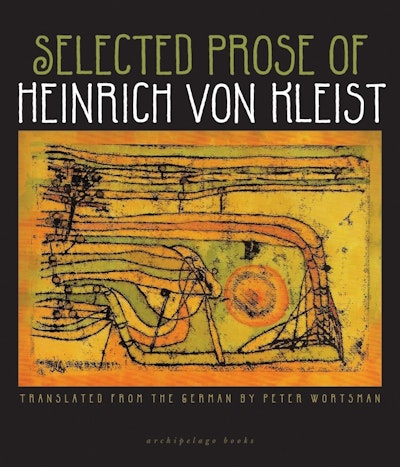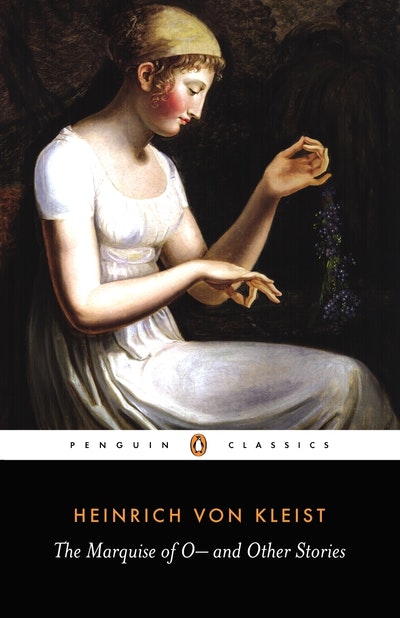- Published: 30 November 2021
- ISBN: 9781784877354
- Imprint: Vintage Classics
- Format: Paperback
- Pages: 112
- RRP: $24.99
Michael Kohlhaas
Newly translated by Michael Hofmann
- Published: 30 November 2021
- ISBN: 9781784877354
- Imprint: Vintage Classics
- Format: Paperback
- Pages: 112
- RRP: $24.99
This sparkling new translation from Michael Hofmann makes for a fine entry point into Kleist's passionate, grotesque, hysterical, and deeply strange body of work
The New Yorker
Michael Kohlhaas: a story about bravery and its twin, stupidity
Roberto Bolaño
The morbid, the hysterical, the sense of the unhealthy, the enormous indulgence in suffering out of which Kleist's plays and tales were mined-is just what we value today. Today Kleist gives pleasure, most of Goethe is a classroom bore
Susan Sontag
Sometimes you find a brother, and you instantly know that you are no longer alone. I experienced this with Kleist
Werner Herzog
His sentences are remarkable - great hatchet-blows of thought, an implacable narrative speed, a pulverizing sense of inevitability. No wonder Kafka liked him so much
Paul Auster
Kleist's narrative language is something completely unique. It is not enough to read it as historical-even in his day nobody wrote as he did. An impetus squeezed out with iron, absolutely un-lyrical detachment brings forth tangled, knotted, overloaded sentences painfully soldered together and driven by a breathless tempo.
Thomas Mann
Michael Kohlhaas could be called a pathology of obsession, or a juridical riddle, or even a kind of magnicent taunt, though none of these is right, or right enough. One must merely read it, and then read it again, staggered by its sheer acceleration, its furious savagery, its vertiginous authority, its exquisite prolongment of closure as event follows improbable event. Kohlhaas is one of literature's eternal characters because he outpaces any interpretive framework. His indomitable reality exceeds our own.
The New Yorker
Kleist is a giant, Cervantes's heir and a one-man avant-garde of the modern German novel.
The Guardian
Our sort is nothing compared to Kleist.
Rainer Maria Rilke
I did not write to you last night, it got too late because of Michael Kohlhaas (have you read it? If not, don't! I shall read it to you!); apart from a short section which I had read the day before, I finished it in one sitting. Probably for the tenth time. This is a story I read with true piety; it carries me along waves of wonder.
Franz Kafka
Michael Kohlhaas is an influential book, loved by best of all by early 20th-century European writers, including Rilke, Mann and Kafka... The wonder of this story is its relentless, vertiginous escalation
John Self, Observer






